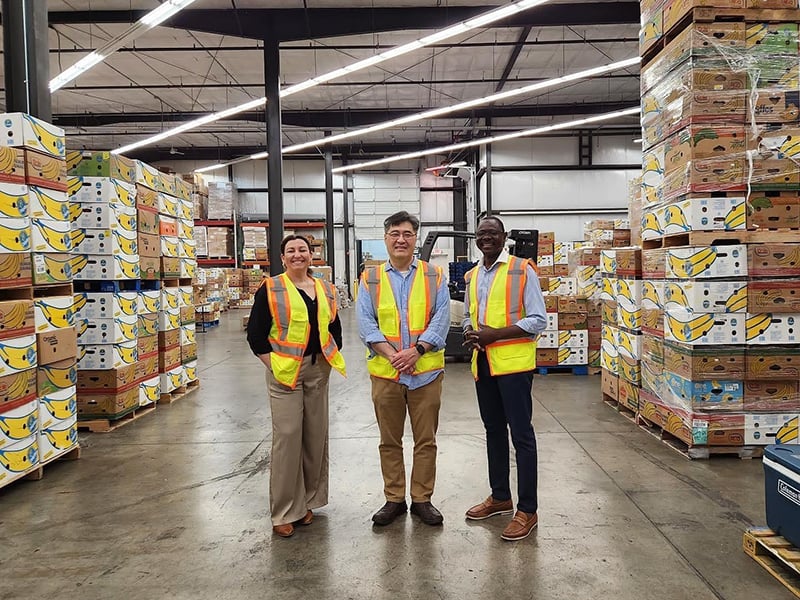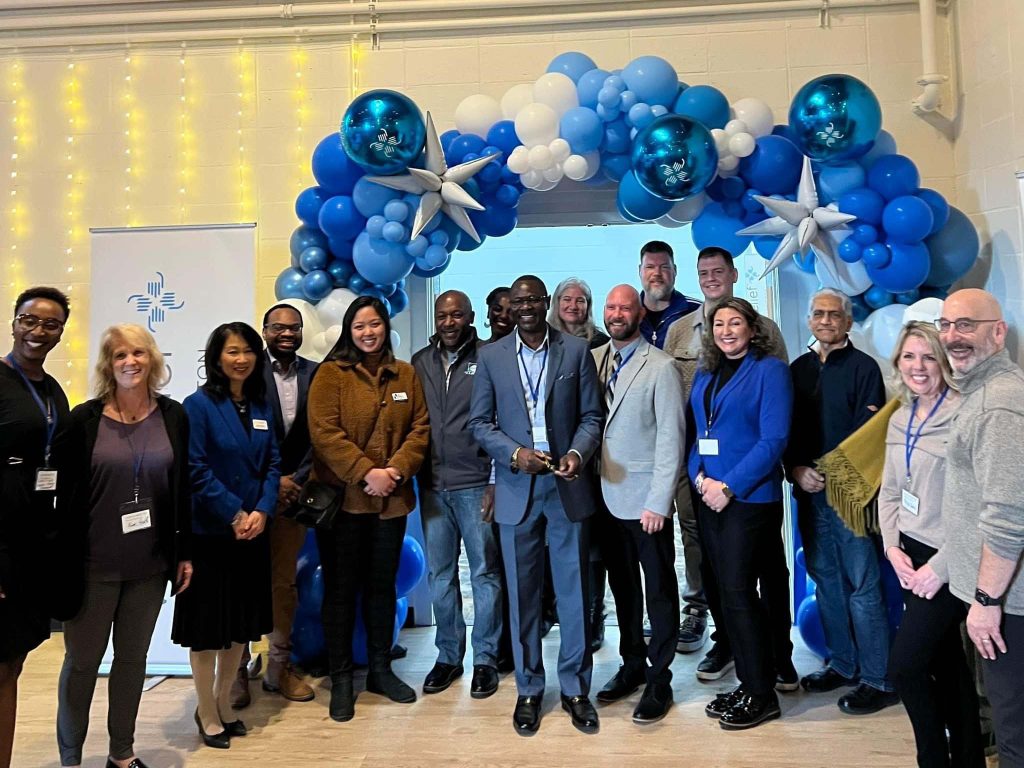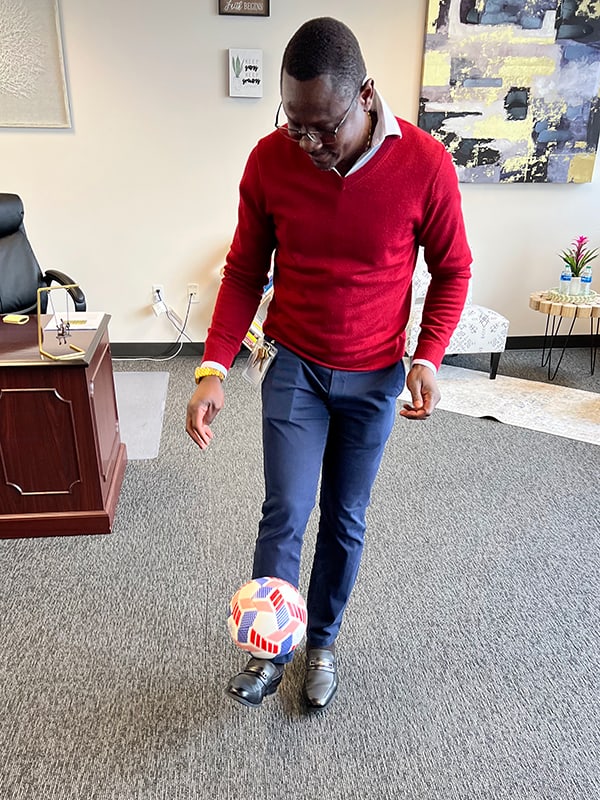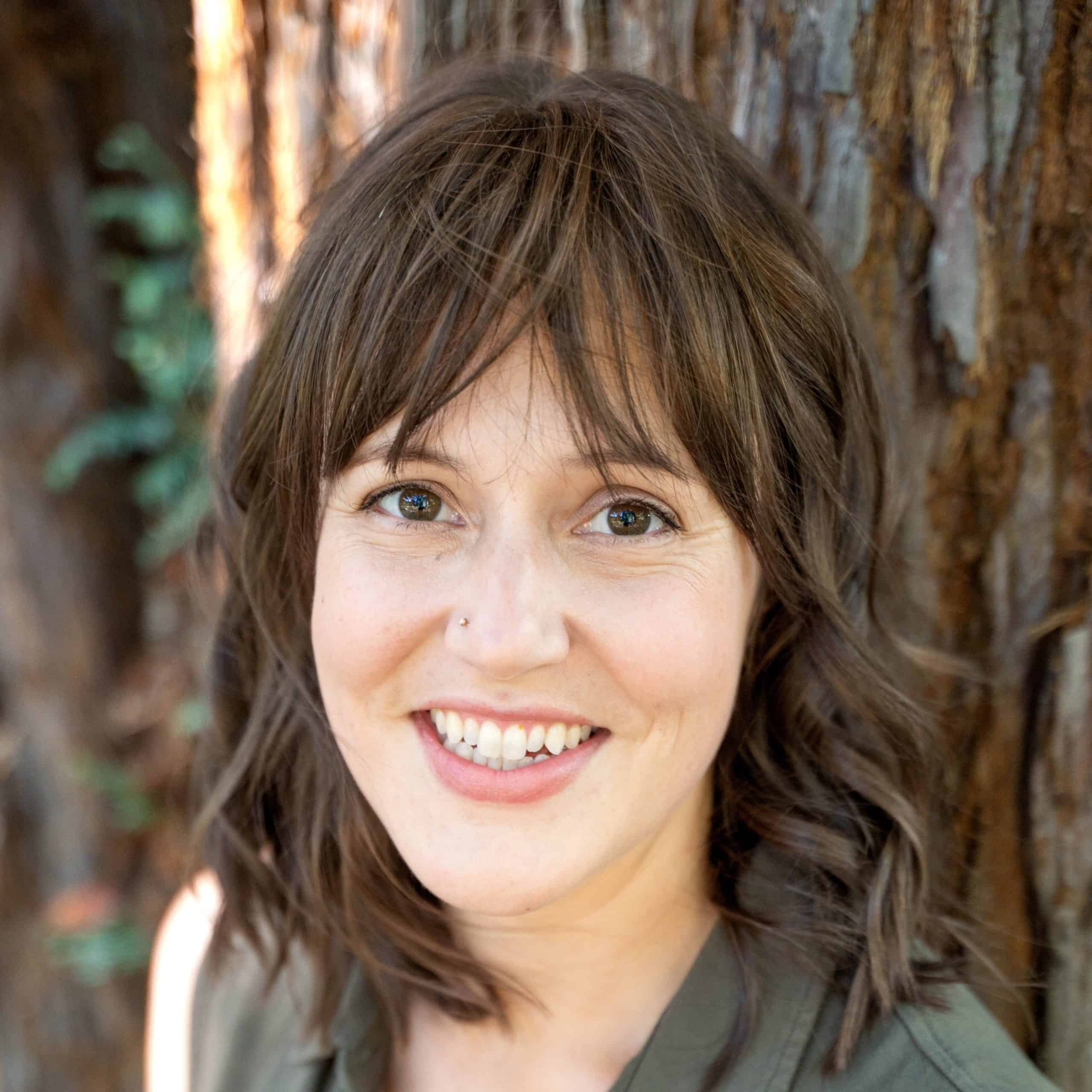Medard Ngueita knows his immigration journey is part of a story. Not one written in ink or on paper, but a story written over years and decades — one that started long before Medard and that will continue long after.
“God is writing his own story,” he says. “And that story that God is writing, I am just a little piece of it. That’s why, every day, when I get up, I stand out of his way and let him write the story that he wants to write through me.”
A New Story
With this humility and a strong sense of justice, Medard serves as Director of World Relief Western Washington. And as the first former participant to assume leadership of one of our U.S. offices, his story is unique — but hopefully not for long.
For decades, immigrant voices and stories have been underrepresented in the leadership of the very programs that seek to serve them. Now, with leaders like Medard at the helm, we’re working to write a new story that honors the God-given gifts and talents present in the communities of refugees, asylees and other immigrants we serve.
“We are not an organization that sees ourselves as above the people we’re serving,” says Medard. “We should reflect and look like [those] we walk alongside.”
Leading Toward Change
In pursuit of this vision, Medard works closely with his staff to reframe how and who they hire. Some resumé requirements on U.S. job postings, he says, just don’t work if you’re looking to hire more people like him who arrive in the U.S. without an American education or, sometimes, the requested prior experience in a particular field.
Medard coaches his staff to look beyond traditional resume requirements to identify “human capabilities” instead. In this way, he hopes World Relief Western Washington can be a place where immigrants and other minorities can build their resumes for the U.S. workplace, rather than perpetuating their marginalization.
“We have to invest in people and believe in their abilities so we can create space for them to be able to rise up to leadership roles,” he says

For Medard, creating space at the proverbial table isn’t just about values — it’s about organizational effectiveness. With leaders of different backgrounds and cultures seated at the table, he says World Relief stands to gain diversity of opinion and thought, and therefore diversity of solutions.
We also gain something much sought after in the nonprofit world — trust. “When people see more people like myself at the table, they trust who we are. They see us and think, ‘yes, they get it.’”
A Heart for Justice
Medard has long been channeling his own experiences and his ability to “get it” into advocacy on behalf of others.
Growing up in Chad, he remembers his single-mom struggling to earn enough as a teacher to meet their needs. But what they lacked financially, his mom made up for in the rich wisdom she passed on.
“When you are blessed to have power,” his mother would tell him, “before making a decision, think about those whom your decision will impact.”
He never forgot her words or the challenges his family faced. When he became more active in civic life as an adult and had the chance to speak against injustices in his home country, he spoke boldly.

“You end up seeing some people become richer and richer while children don’t have schools they can go to… those are things that aren’t right in my eyes.”
Medard’s strong convictions, however, got him into trouble. Some viewed his outspokenness as dangerous political opposition, and it eventually became unsafe for he and his wife, who were newly married, to stay in Chad.
Building a New Life
In 2006, they came to the U.S, seeking political asylum. Shortly after arriving, Medard’s wife, Giselle, gave birth to their first child.
With their asylum case still pending, the young couple received little assistance from the U.S. government. “Being young parents in a country where you’re trying to learn everything… That was really difficult for us,” Medard remembers.
Then, in 2007, their asylum case was approved, allowing the family to seek assistance from their nearest refugee resettlement agency — World Relief.
Staff and volunteers from World Relief Seattle (now World Relief Western Washington) helped Medard and his wife learn to navigate their new community, taught the couple English and helped Medard secure his first job.
Connecting with World Relief marked a significant shift for the family “Life started to have meaning for us,” he said.
Co-Authoring Change That Lasts

Sixteen years later, Medard is now a father of four and he has high aspirations for how he plans to lead the organization that once served him.
Since he first arrived in the U.S., World Relief Western Washington has expanded to three regional locations. As refugee resettlement ramps up across the U.S. after cuts to the program under the previous Presidential administration, Medard has had to rapidly expand his staff to meet the demand for services.
As part of that expansion, he continually has an eye on the path to leadership for former asylum seekers, refugees and other immigrants like him.
When he imagines his legacy, he asks himself, “What is that story that I can write for all other refugees and immigrants who are coming through this organization as well?”
And if he ever feels overwhelmed by the burden of leadership, he’s quick to remember that he’s not writing this story alone. “Whatever story will be written, it is a story that’s been written by God himself. It is not me because I am a talented person, it is because God used me to write his story, and that glory goes to him.”
Read how God is writing more stories of change here at World Relief.

Kelly Hill is a Content Manager at World Relief. She previously served as Volunteer Services Manager at World Relief Triad in North Carolina. With a background in International and Intercultural Communication, she is passionate about the power of story to connect people of diverse experiences.
